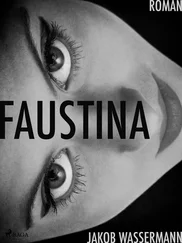Jakob Wassermann
My First Wife
SIX SISTERS
She had five sisters — four older, one younger. The six Mevis girls were known all over the city. Whenever they appeared together, they were like a sealed phalanx, from the classically beautiful Lydia to the graceful Traude. Their father and commander-in-chief, Professor Gottfried Mevis, shining beacon of the law faculty, a striking-looking man, was their Barbarossa. Six daughters and no sons — that was some freak of nature. Ribald commentators predicted a whole tribe of grandchildren. Frau Mevis, given name Alice, née Lottelott — one of the Düsseldorf Lottelotts, of Lottelott & Grünert, Consolidated Steel — had inherited a large fortune. The family, respected and envied, lived comfortably in a spacious villa.
DUCKLING
No question: where physical attributes were concerned, Ganna lagged some way behind her sisters. She had become aware of the fact very early, to her chagrin. Mirrors proclaimed it, the expressions and reactions of others confirmed it; she was the ugly duckling among five swans. Therefore it was her task to clear a path for herself through the five arrogant swans. Nor was that enough; Ganna wanted to outdo them. She was endlessly ambitious. She dreamed of a glorious future. Hers weren’t the usual banal girlish dreams, they were scenarios and imaginings of an unusual definition. She felt chosen, even though she couldn’t have said in what way.
Even as a child, she had been hard to manage. I have heard tell that she was repeatedly the subject of scenes and commotions. In her tenth year, Professor Mevis took to giving her twice-weekly prophylactic beatings, to get her out of the habit of lying. A barbarous measure, which failed to achieve its purpose, and only caused Ganna unnecessary suffering. Because surely these childish lies of hers were only self-protective fantasies. Beatings only made her more wilful, and drove the badness further into her. When she was beaten, she would scream like a banshee. Sometimes she would throw herself to the ground and thrash about with her arms and legs. That would only provoke the Professor further. Once, her mother sent for the doctor, because Ganna wouldn’t calm down. Irmgard, her next-older sister, shrugged her shoulders and said it was play-acting, Ganna was putting on an ‘epileptic fit’; she had seen another girl at school have one a few days before.
So I was told. Also that on another occasion the Professor had lost his temper with her, and in his rage — which, like all tyrants, he enjoyed — shouted the words in her face: ‘You’re the nail in my coffin!’ Whereupon Ganna is said to have fallen to her knees and raised her arms to him imploringly. A number of the sisters were listening at the door, with gleeful expressions. Ever since, when they were among themselves, they referred to Ganna as the coffin nail. All of which goes to show that a duckling has no easy time of it among swans. Swans are cruel and snobbish birds.
She thinks she’s better than us, said the sisters, and from time to time they would rise up and make common cause against her. Ganna refuses to do any chores, so she’s responsible for all domestic mishaps. She is so highly strung that she often breaks things, therefore she gets the blame for anything and everything that breaks in the house. A carton of expensive laid paper goes missing; the bathtub overflows; a china vase is found in pieces on the carpet; little stick-figures have been scratched in the cream gloss on a door: who is the culprit? Ganna. Look at her standing there, said the sisters, refusing to defend herself, eyes lowered like a good girl, every inch a martyr; it’s no good, Ganna, we’ve seen through you!
THEY WANT YOU TO LIE
Punctuality was enjoined in the Mevis household. The paternal rule decreed that lunch was on the dot of one. Time and again, there they all were sitting at table: Lydia, Berta, Justine, Irmgard, Traude, the Professor, Frau Mevis, their old nurse, Frau Kümmelmann — only Ganna’s chair was unoccupied. Ganna’s deeply ingrained objection to time-keeping was another of the family traditions. Professor Mevis pretends not to notice Ganna’s absence, but his brow is twitching ominously. Frau Mevis keeps looking anxiously at the door; she’s suffering agonies. Finally a creature bursts into the room in a mad rush, her face puce, her eyes wide with dread, her hair a tangled mess; and while the wrathful father, strangling his red beard in his fist, glowers at her, the sisters, five models of virtue, titter quietly to themselves, because there can be no doubt that Ganna is about to tell one of her famous stories that don’t have a shred of truth in them, however masterfully she tells them. Poor Ganna. Don’t you feel sorry for her. She stutters, she stumbles over her words, poor mite, she’s so moving in her plight one should take her and pet her a bit; eight pairs of eyes are levelled at her, not one of them kind, not one of them encouraging, and there is nothing masterly about the story either — quite the contrary, her excuse gets snarled up in itself, and in the end she falls silent and starts eating her soup. Having witnessed similar scenes myself later, I can be fairly sure that they will have passed off in this way.
At any rate, Ganna comes to see that it is necessary to lie in order to save one’s skin. It’s what they expect. Really, they made her do it. Lying becomes an indispensable weapon for Ganna, like the black liquid into which the cuttlefish disappears. The plain truth doesn’t work on them, you don’t get your peace that way, you have to make things up. Experience becomes a sort of semi-scandalous adventure, and by and by her spirit is no longer content in a rather colourless reality.
SEVERAL OF THE SWANS LEAVE THEIR HOME POND
Round about 1895, when Ganna was seventeen, her older sisters started marrying. One after the other, as though by some contagion, they fell in love, became engaged, married, started a home, and from that time forth were only ever seen at the side of their swains, with whom they behaved with unseemly displays of intimacy. The experience of three weddings in next to no time was decidedly difficult for Ganna. It was the combination of love and settling down, of dowry and secret and blatant necking that offended her idealistic sense. At least that’s what I assume to have been the case. She did not trouble to hide her contempt: the noble swans had soiled their plumage. I remember reading a passage in one of the diaries she kept as a girl. There she protested: I could never give myself to a man who wasn’t my intellectual equal. Once, when Lydia’s consort, who was a professional seducer, attempted a tender advance on Ganna, she bit him on the thumb so hard that he had to wear a rubber fingerstall for days afterwards. ‘Satanic little minx,’ he would say furiously, when her name came up later.
The three most stainless of the swans had cleared the field, but there were still two left, who were more irksome, being closer to her in age. Also, the married ones continued to show off their exemplary lives and characters in the face of Ganna’s loneliness, in which enterprise they had the support of their contented, beaming husbands, who had every reason to be proud of so much honour, intelligence and domestic virtue.
GANNA LIVES IN A WORLD OF HER OWN
She did not know the meaning of obedience. Whatever she wasn’t allowed to have, she would purloin for herself secretly. She was full of cunning. If asking isn’t enough, and a person is driven to plead for something, it will tend to make them devious. She even used her absent-mindedness as a way of securing small advantages for herself. If you can make people laugh, they will be more lenient in their judgement of you. I know fools who are so diligent in their folly that they can quite comfortably live by it. The confusion that Ganna wrought kept her family and friends continually amused. Misplaced letters, garbled names, forgotten appointments, muddled dates and places, forsaken umbrellas, lost gloves, attempts to leave by the wrong door, inappropriate replies, pointless errands: it was one continual comedy of errors. ‘Have you heard the latest about Ganna Mevis?’ was a standing question in her circle. And some story would follow about how she had gone out into the woods one summer morning with her hairbrush wedged under her arm, firmly convinced she had Beyond Good and Evil with her. Priceless, people said, and they laughed till they cried. It was all very innocent, very adorable. And the most delightful thing of all was that Ganna herself could laugh at her innumerable slips, with a winning laugh that even made up for the coarse indiscretions she was often guilty of in her absent-mindedness. She lived in a world of her own that seemed to have been designed especially for her.
Читать дальше







![Jakob Wassermann - Issue Does Not Exist],errors:{](/books/585068/jakob-wassermann-issue-does-not-exist-errors-thumb.webp)




